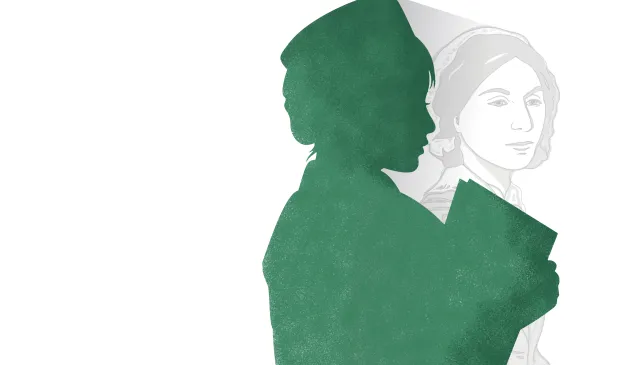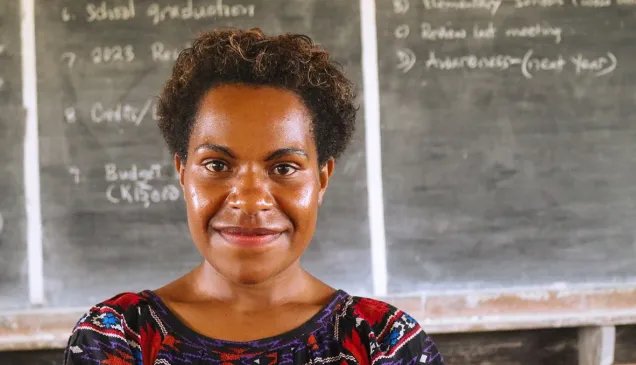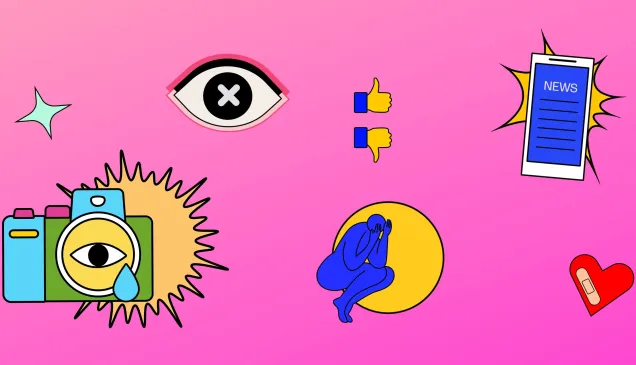Colombia, checkpoint near Chuapal, San José del Guaviare. Security concerns must be balanced by humanitarian considerations in all situations. This means giving ambulances and other medical vehicles priority at checkpoints.
Health care in danger: Military assistance in facilitating safe access to health care
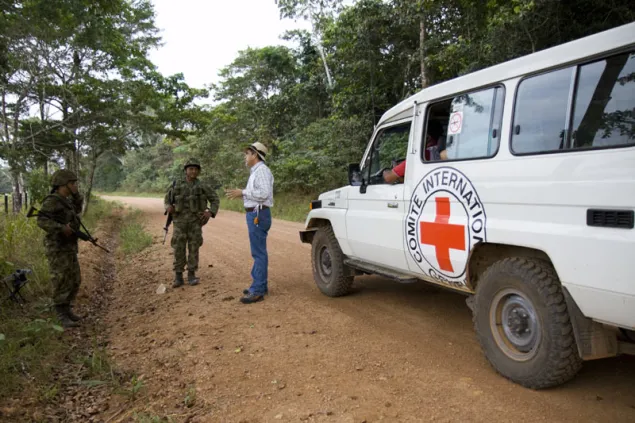
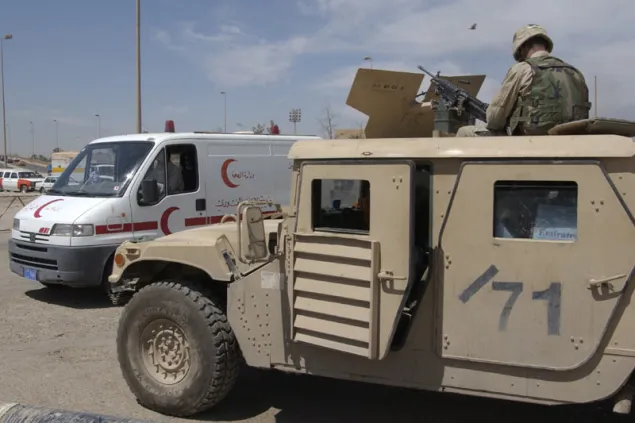
Iraq, Baghdad. An Iraqi Red Crescent ambulance and an military tank meet at an interchange. Health-care providers and military personnel often find themselves alongside each other in times of war. It is crucial that all parties to a conflict respect the secure and impartial delivery of health care.
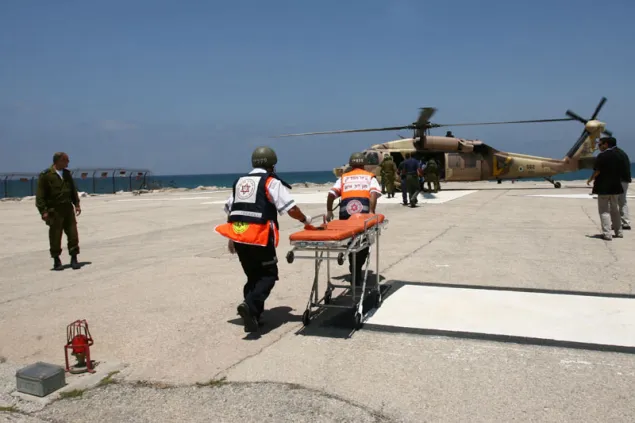
Israel, Haifa. Magen David Adom paramedics evacuate wounded soldiers to a hospital. Combatants and authorities alike must allow medical personnel to prioritize treatment based solely on the needs of the sick and wounded and without discrimination.
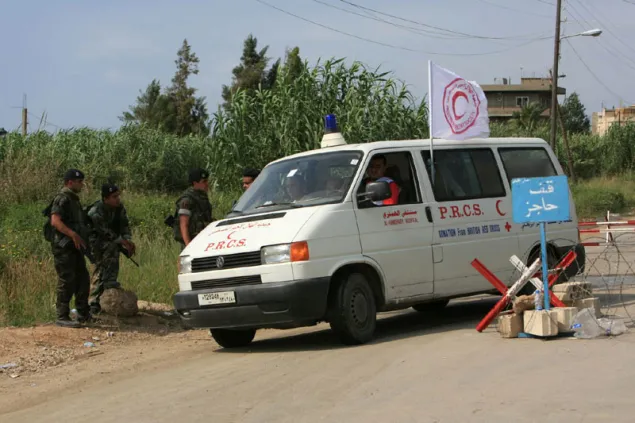
Libya, Nahr el Bared refugee camp entrance, Tripoli. A Palestinian Red Crescent ambulance evacuates refugees from the camp. First-aiders must be able to respond in situations of violence. This means giving them unhindered access to those in need of help.
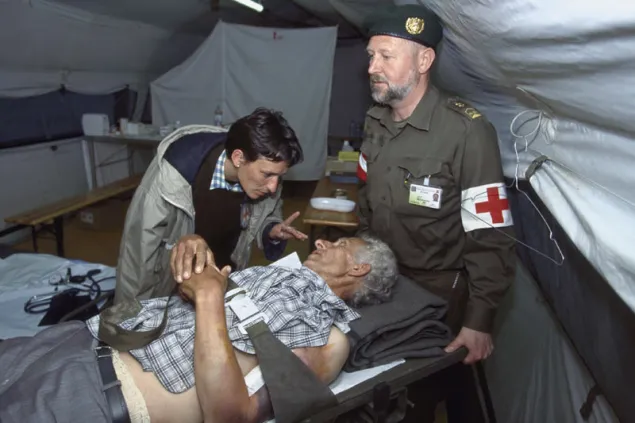
Albania, Shkoder. A wounded person is evacuated to a field hospital run by the Austrian army. Military personnel must ensure that all wounded and sick are treated impartially.
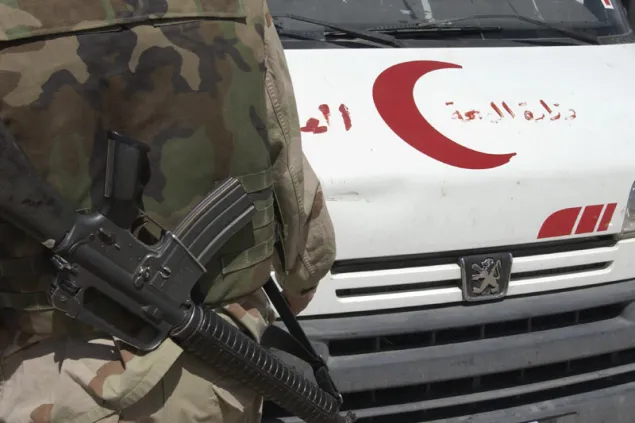
Iraq, Basra. Following the shortage of fuel at most filling stations, the American army fills the petrol tank of a Red Crescent ambulance. A variety of practical measures integrated into the operational practices of the military can facilitate the delivery of health care in countries affected by armed violence, in which solutions can be very different from one context to another.
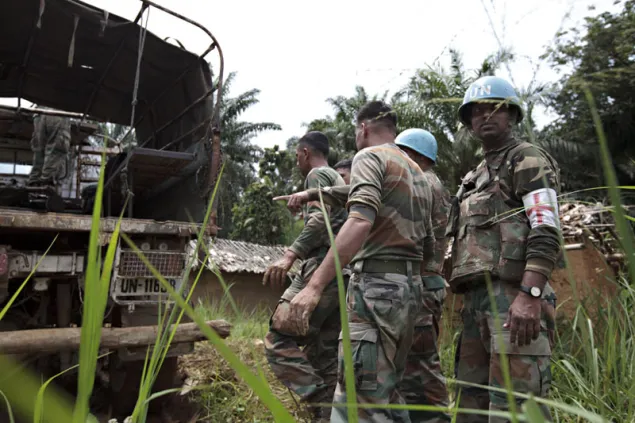
Democratic Republic of Congo, UN forces, including military medics in North Kivu. The long and brutal conflict has caused massive suffering among the civilian population. Local medical staff personnel were not always able to reach the wounded and sick due to the general insecurity. In some cases where the emergency needs were high, military medics were also treating civilians.
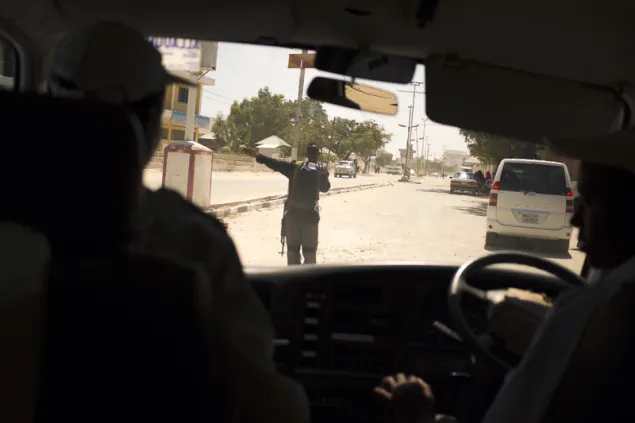
Somalia, Mogadishu. A soldier lets an ambulance cross at a military checkpoint. Fast-tracking of ambulances at checkpoints is key to ensuring timely access to medical facilities for the sick and wounded.
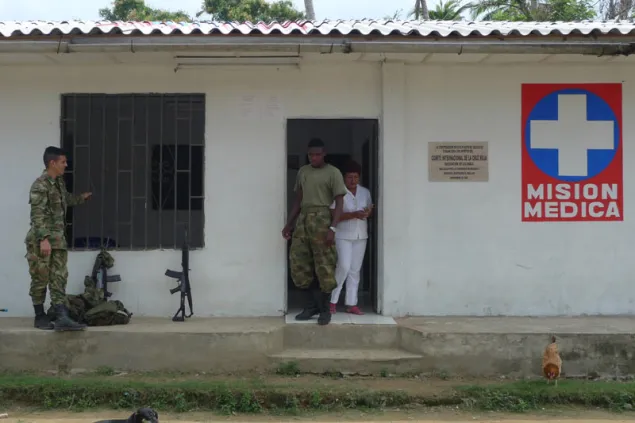
Colombia, South Bolívar department, municipality of Montecristo. A medical auxiliary and members of the Colombian National Army in front of the Medical Post, marked by a national emblem developed to protect health-care workers. In situations of armed violence, medical facilities must be respected. For all those involved in the fighting this means ensuring hospitals are not attacked, damaged or misused.
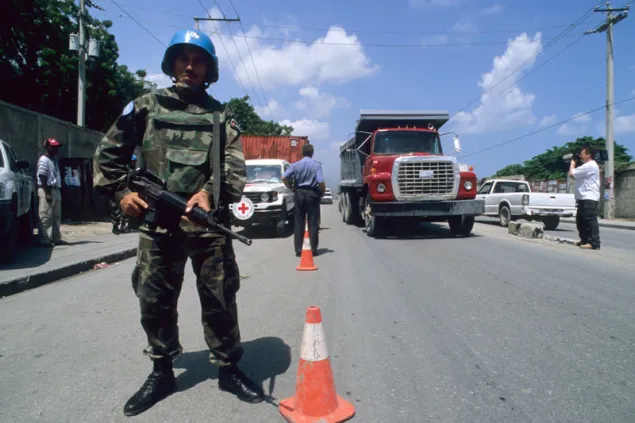
Haiti, A UN MINUSTAH checkpoint, Cité-Soleil shantytown in the suburbs of the capital city, Port-au-Prince. From 2004 to 2006, this part of the capital was difficult to access by public health-care services due to insecurity. In most instances, volunteers from the Haiti Red Cross were the first to provide emergency care to the wounded and sick, as their impartial action was accepted by both the military and local gangs.
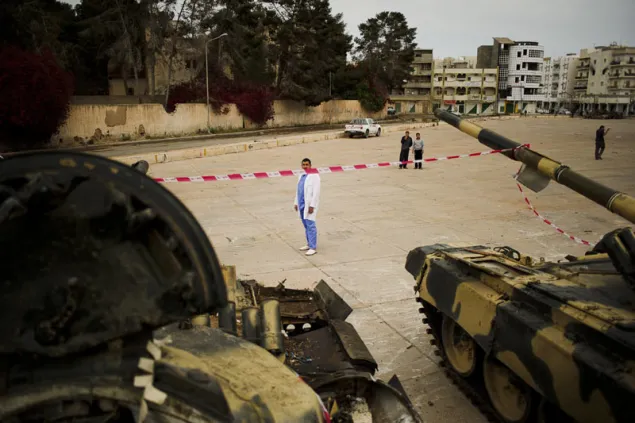
Libya, Misrata. A doctor checks to see if any patient needs to be evacuated. Health-care workers must provide care impartially. For the military this means ensuring medical personnel are not threatened or harmed.
Even in situations of armed conflict, in the middle of a war or during a violent upheaval, it is still possible to ensure that the wounded and sick receive timely access to health care. Over the years, the role of the military has often been ambivalent in terms of facilitating access to health care, sometimes preventing access altogether, thus affecting the well-being of thousands of people around the world. An ICRC workshop held in Australia considered ways in which the military can take concrete measures to facilitate safe access to medical care, thereby ensuring impartial treatment of the sick and wounded.

